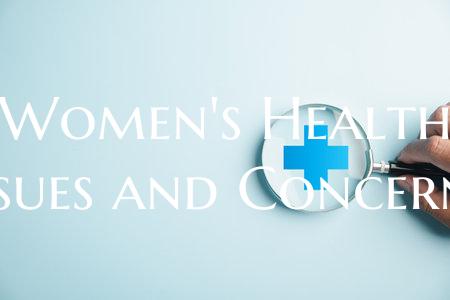
Women's Health Issues and Concerns
Women's Health Issues and Concerns
Introduction Women's health is a topic of significant importance, encompassing a wide range of issues and concerns that impact women's overall well-being. From reproductive health to mental health, there are various factors that play a crucial role in maintaining women's health and addressing potential challenges. In this article, we will explore some of the key health issues and concerns that women may encounter throughout their lives.
Reproductive Health Reproductive health is a fundamental aspect of women's overall well-being. Regular gynecological check-ups, contraception, and preconception care are essential components of maintaining reproductive health. Issues such as menstrual irregularities, polycystic ovary syndrome (PCOS), endometriosis, and infertility can significantly affect women's reproductive health and quality of life. Early detection and management of these conditions are crucial in ensuring optimal reproductive health outcomes.
Breast Health Breast health is another important concern for women, given the prevalence of breast cancer and other breast-related conditions. Regular breast self-exams, clinical breast examinations, and mammograms are vital in detecting any abnormalities or signs of breast cancer at an early stage. Awareness of breast health and risk factors can help women take proactive steps to reduce their risk of developing breast cancer and other breast-related issues.
Mental Health Mental health is a critical component of overall well-being, and women are particularly vulnerable to certain mental health conditions. Factors such as hormonal fluctuations, stress, societal expectations, and life transitions can impact women's mental health. Depression, anxiety, eating disorders, and postpartum depression are among the mental health issues that women may face. Seeking support, practicing self-care, and accessing mental health services are important steps in addressing and managing mental health concerns.
Cardiovascular Health Cardiovascular health is often overlooked in discussions about women's health, despite being a leading cause of death among women worldwide. Risk factors such as high blood pressure, high cholesterol, obesity, and smoking can increase women's risk of developing cardiovascular diseases. Lifestyle modifications, including a healthy diet, regular exercise, and tobacco cessation, can significantly reduce the risk of cardiovascular issues in women. Regular cardiovascular screenings and early intervention are also crucial in promoting heart health and overall well-being.
Bone Health Osteoporosis and osteopenia are common bone health concerns that predominantly affect women, especially as they age. Hormonal changes, genetics, and lifestyle factors can influence women's bone health and increase their risk of developing bone-related conditions. Adequate calcium intake, vitamin D supplementation, weight-bearing exercises, and bone density screenings are essential in promoting strong and healthy bones throughout a woman's lifespan.
Conclusion Women's health encompasses a broad spectrum of issues and concerns that require attention and proactive management. By prioritizing reproductive health, breast health, mental health, cardiovascular health, and bone health, women can take positive steps towards maintaining their overall well-being and quality of life. Regular screenings, healthy lifestyle choices, and seeking timely medical intervention are crucial in addressing women's health issues and promoting optimal health outcomes. Empowering women with knowledge and resources to make informed decisions about their health is essential in ensuring that women's health needs are met and supported effectively.